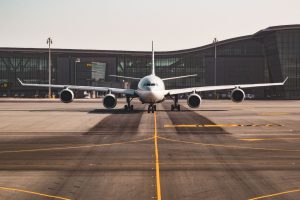 An international research team consisting of Professor Peter Turnbull (University of Bristol), Dr Huw Thomas (University College Dublin) and Professor Geraint Harvey (Western University) have spent the past two years researching the impact of COVID-19 on Air Navigation Service Providers (ANSPs).
An international research team consisting of Professor Peter Turnbull (University of Bristol), Dr Huw Thomas (University College Dublin) and Professor Geraint Harvey (Western University) have spent the past two years researching the impact of COVID-19 on Air Navigation Service Providers (ANSPs).
There have long been concerns about the commercialisation of ANSPs and the user pays system that funds ongoing operations, future investment in equipment and the training of staff. As the report demonstrates, the COVID-19 pandemic exposed structural flaws in the commercialised provision of ANS in the most devastating way imaginable.
In the report, we argue that the minimum (essential) level of service/staffing should be funded by the state. Beyond that, users might be charged directly for ANS, but policymakers need to reconsider who are the ‘users’ and how they pay for what is ultimately an invaluable but invisible service.
Policy recommendations
- The pandemic has demonstrated the ‘public good’ nature of ANS. The minimum level of service and staffing should be funded by the state through general taxation.
- Plane tickets should be transparent with all service costs identified so that passengers understand the ‘real cost’ of flying in terms of safety, environmental impact, and maintaining high social standards.
- Social dialogue is essential to (re)build social support and personal resilience within ANSPs as well as the capacity to manage organisational change and future external disruption more effectively.
- To ensure organisational resilience, on-going investment in recruitment and training, based on long-term planning to accommodate pro-cyclical demand, is a necessity.
- Policymakers need to reconsider the business models of ANSPs, who are the ‘users’, and how they pay for what is ultimately an invaluable but invisible service. Any system of user charges should include provision for ANSPs to accumulate a reserve fund to ensure financial resilience when faced with any future crises.
Key findings
- COVID-19 is unlike any previous global crisis to befall the civil aviation industry, both in terms of depth (collapse of traffic) and duration.
- COVID-19 has highlighted the importance of both personal resilience of staff and organisational resilience.
- ANSPs have only survived the pandemic because of loans from the state and/or financial institutions, combined with significant changes to staffing levels, shift arrangements, recruitment and training, remuneration and other conditions of employment.
- There is clear evidence of different responses to the pandemic from ANSPs based on their model of financing. Commercialised ANSPs have experienced greater conflict with airlines over charges and staff over restructuring.
- Whilst some ANSPs have imposed policies with detrimental effects on air traffic staff, others have relied on constructive, co-operative, and continuous social dialogue.
- The scene is set for on-going conflicts of interest between service providers and users, with ever greater pressure on ANSPs to cut cost at precisely the time when they need to invest in both human and physical capital to enhance the future flexibility and scalability of air navigation services.
Read Keeping the skies open during a global pandemic
Find out about MSc in Human Resource Management and the Future of Work
Contact the authors:
Peter Turnbull – peter.turnbull@bristol.ac.uk
Huw Thomas – huw.thomas@ucd.ie
Geraint Harvey – gharvey2@uwo.ca

